The sculpture Andrum (Breathing Space) has been carved by the artist Haidar Mahdi directly into the stone wall that surrounds the plantings outside the District Court in Norrköping. This gives the sturdy square block of granite a layer of bustling shapes that renders softness and life to the wall.
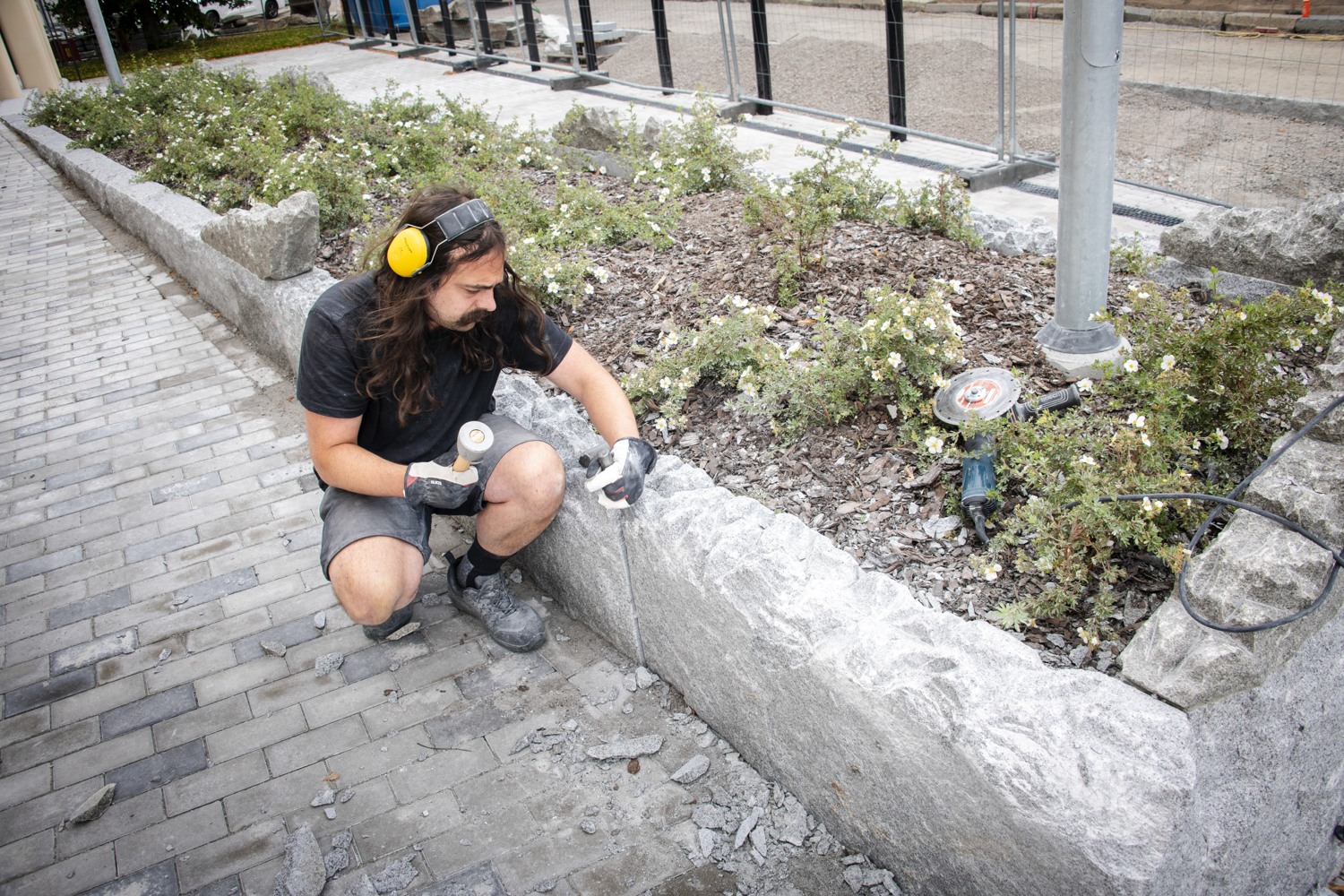

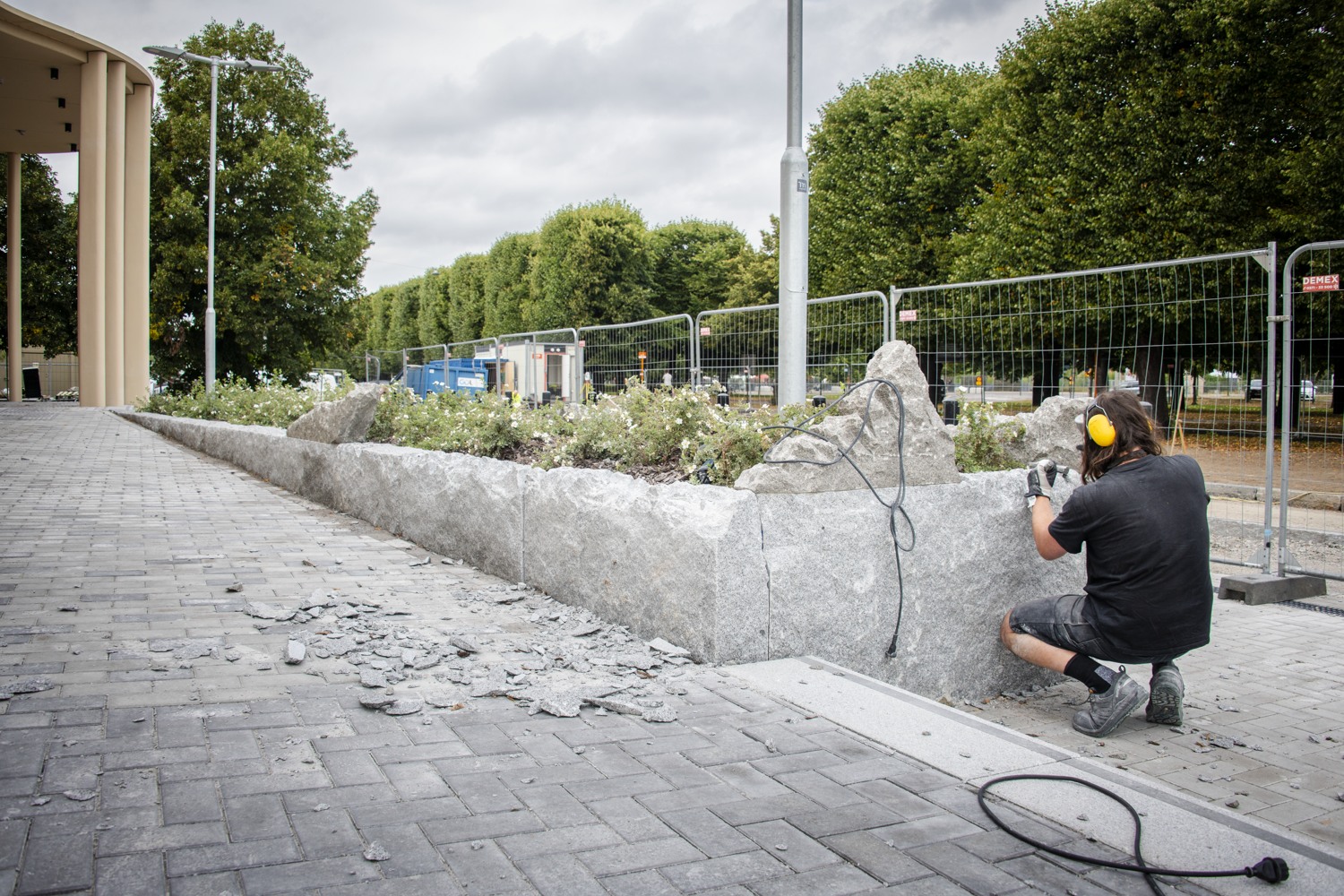
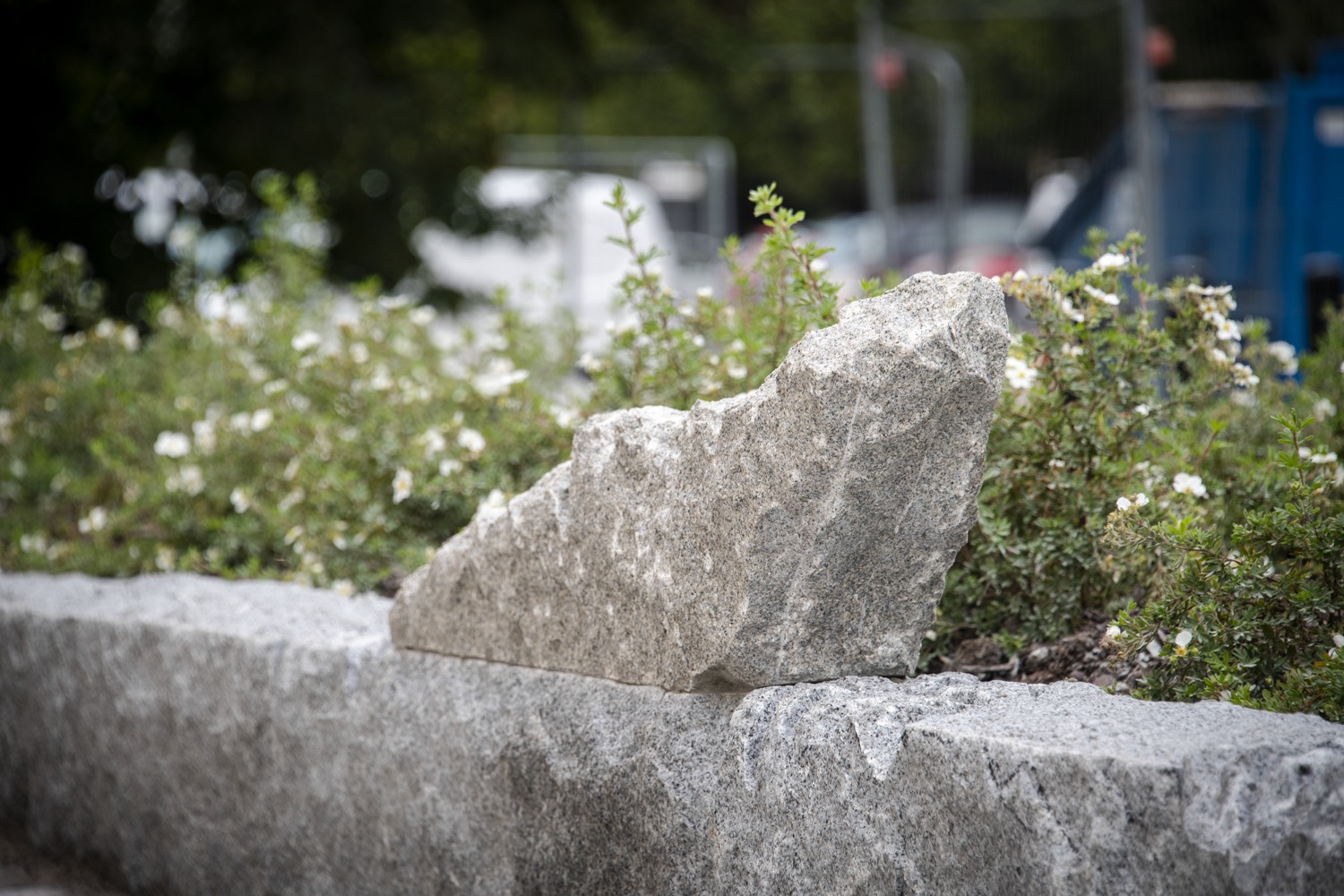
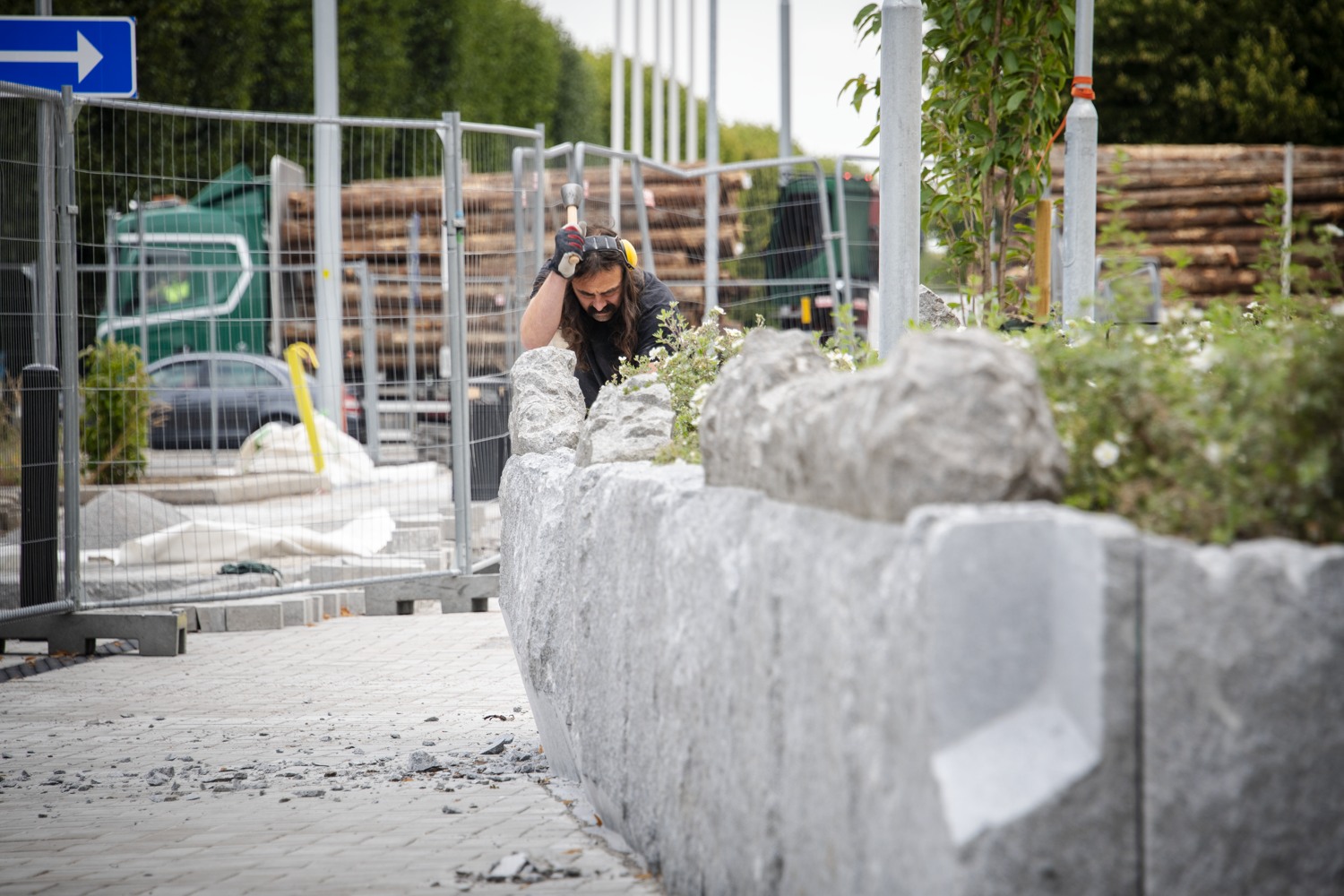
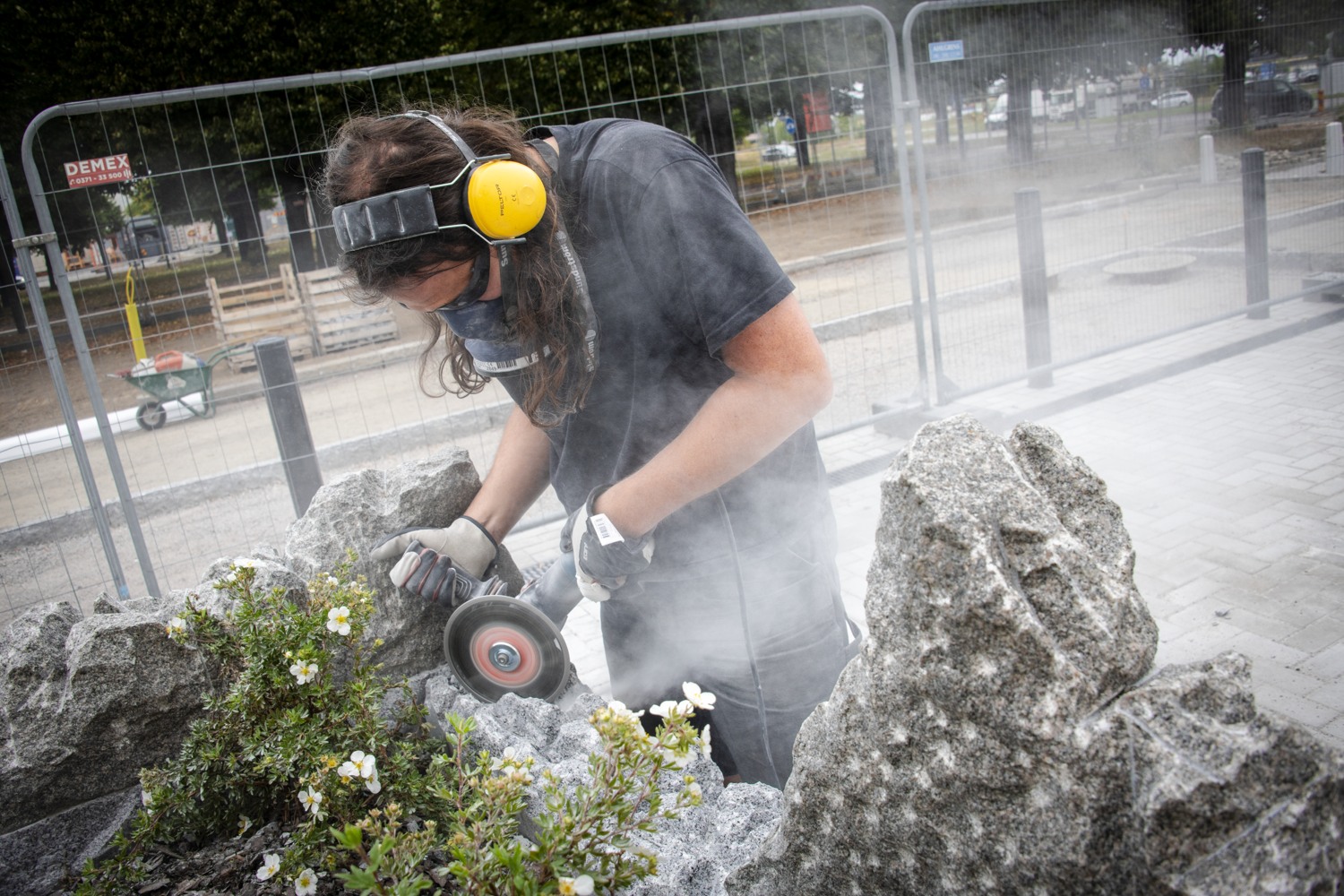
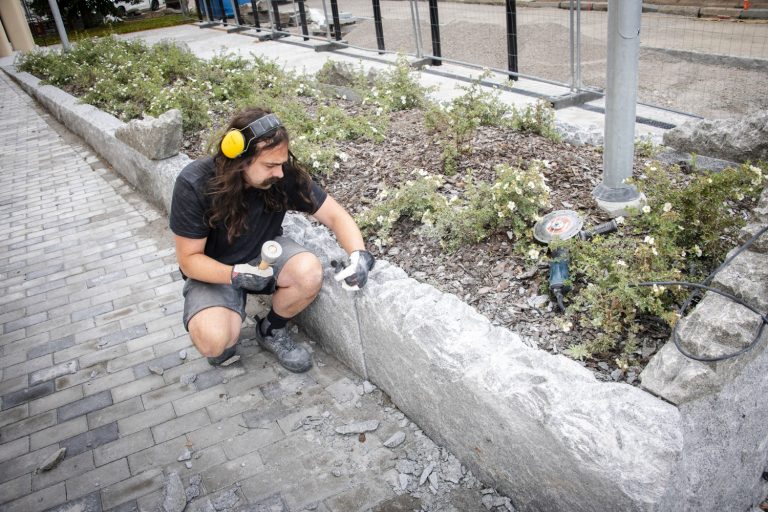
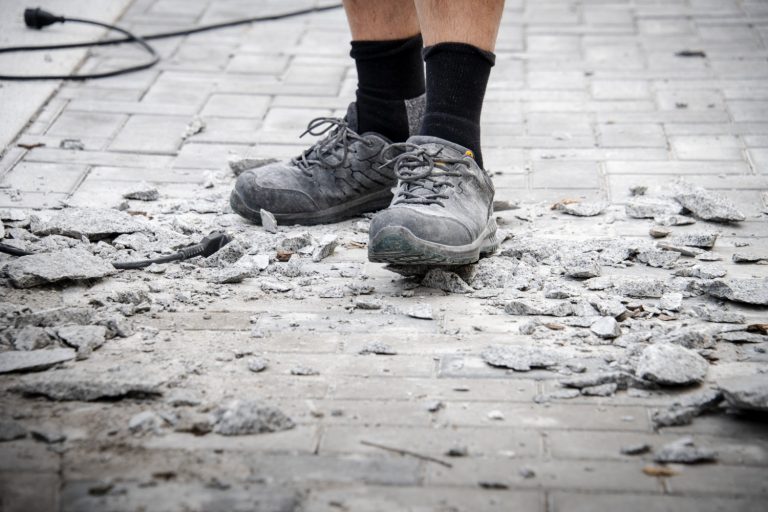
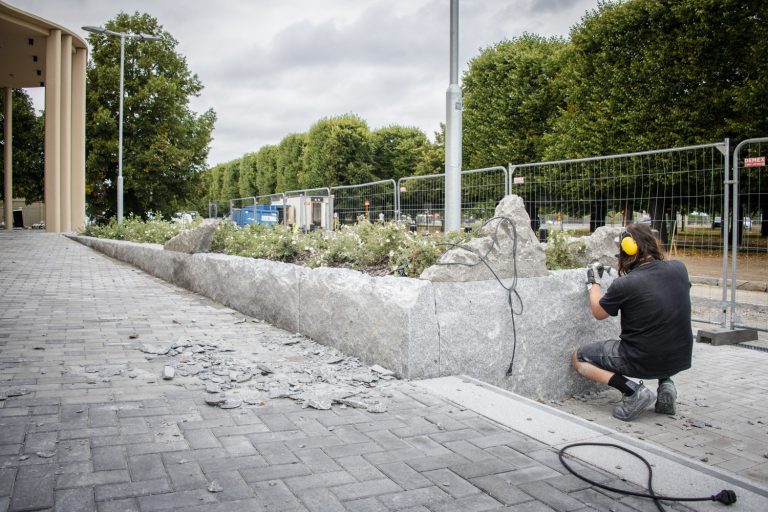
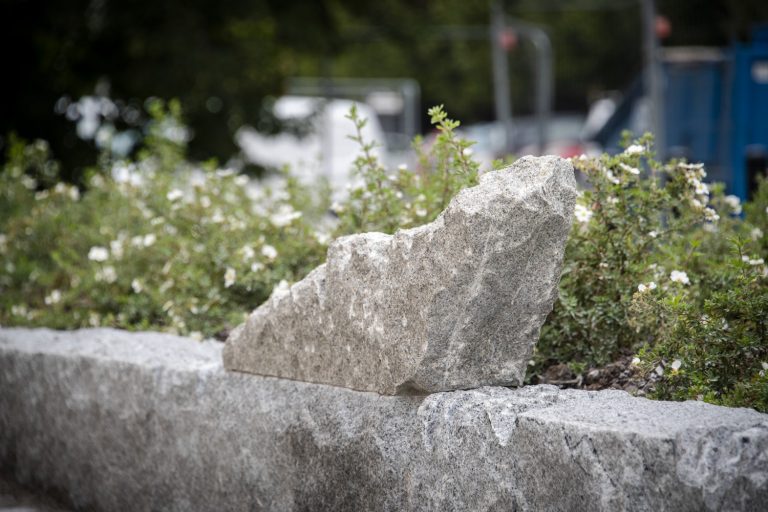
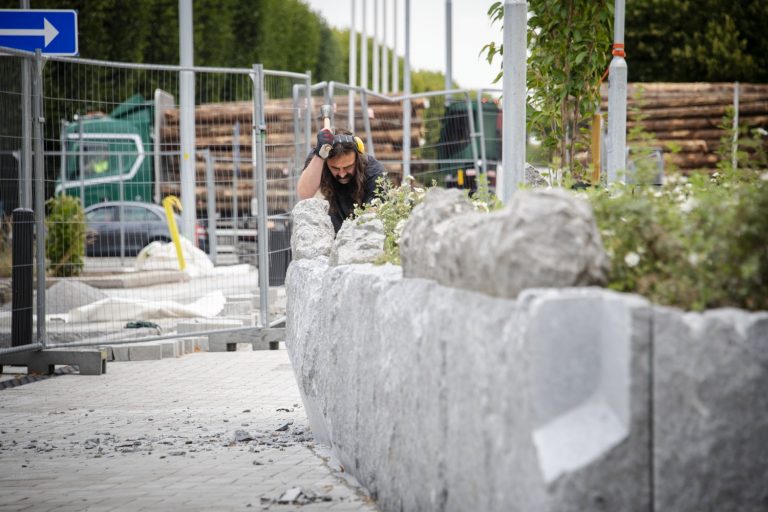
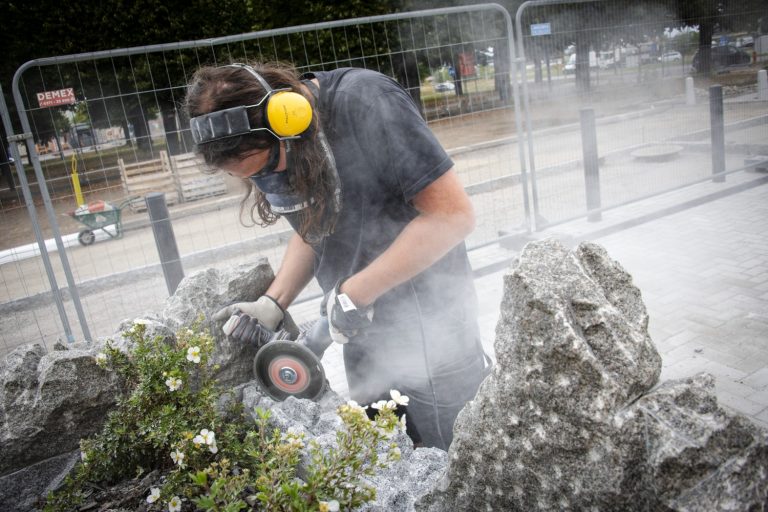
En demokrati är beroende av en fungerande rättsstat där medborgarnas fri- och rättigheter skyddas. Oberoende och opartiska domstolar, där alla har rätt att få sin sak prövad, är därför ett av de viktiga fundamenten som det svenska samhället vilar på. De lagar som domstolarna dömer efter är i sin tur det som domstolarna vilar på.
A democracy is dependent on a functioning constitutional state where the citizens’ freedoms and rights are protected. Independent and impartial courts, where everyone has the right to have their case heard, are therefore one of the important foundations on which the Swedish society rests. The laws that the courts judge by are, in turn, what the courts rest on.
The District Court in Norrköping is located right next to Norra promenaden, one of the promenades that was built in the late 19th century to mark the city boundaries. Broad avenues of trees surround a city centre built in a clear grid pattern. The city plan, drawn up in the 17th century, has created order and ensured that construction has taken place under more controlled forms than before. The river Motala ström flows through the city, the water has given life and power to the city throughout history. The water takes its own route and draws an organic pattern through the city’s grid.
For Haidar Mahdi, the stone wall in front of the District Court appeared as a symbol of the rules that create order, for the city plan and the codes of law. But it lacked life. It is possible to read a symbolism in his sculpture, and in the measure to transform the stone wall into a sculpture. Mahdi has allowed life and organic forms to grow on a square and solid foundation, just like the city of Norrköping. At the same time, the sculpture is open to other interpretations. Mahdi himself believes that it becomes a breathing space and a place to stop at, again and again, for contemplation and reflection.
– I want to give this place an organic form that almost feels alive and growing, but where the material, the granite, conveys calm and stability. The sculpture is intended to bring peace and joy to those who come to the place. They will be met by something unpredictable that is allowed to grow. Being part of something that emerges where you least expect it, that is when art touches me the most. When it doesn’t fit in, Haidar Mahdi says.
The work was commissioned by the Public Art Agency in collaboration with Vacse and is part of the Public Art Agency’s work with the policy area of designed living environment.

Artist biography Haidar Mahdi
Haidar Mahdi (1986) was born in Karlshamn and works in Stockholm. He combined a degree from the Ceramics and glass programme at the Konstfack University College of Arts, Crafts and Design with a degree from the Royal Institute of Art. Haidar Mahdi has participated in several group and solo exhibitions and worked with public designs.